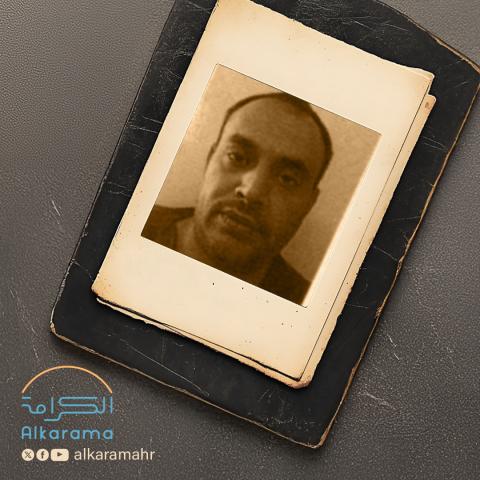
On October 16, 2024, Alkarama addressed an urgent appeal to the UN Special Rapporteur on extrajudicial executions regarding the risk of extradition faced by Saudi citizen Ayesh Al Harby, currently detained in Iraq.
On October 10, 2024, Al Harby was brought before the Al Rusafa court, which informed him of his imminent extradition to Saudi Arabia, where he risks being executed, or at best, tortured.
Alkarama urgently contacted the UN Special Rapporteur on extrajudicial executions to urge Iraq to refrain from extraditing him.
Arrest and imprisonment
Al Harby was one of the leaders of the non-violent hijacking of a Saudi Airways plane from Jeddah to Baghdad in September 2000, alongside Faisal Naji Hamoud Al Bilawi, in protest against the disastrous human rights situation in Saudi Arabia.
Upon their arrival in Baghdad, both were arrested and briefly detained. After a security investigation, which showed their reluctance to commit acts of violence, they were released and granted political asylum in Iraq. The Saudi authorities' extradition request was then rejected.
Following the American invasion and the fall of Saddam Hussein in 2003, Al Harby's associate, Al Bilawi, was abducted under unclear circumstances and handed over to Saudi Arabia, where he has since disappeared. His family has not received any further news of him and fears that he was executed.
On July 17, 2005, Al Harby was arrested again by American armed forces in Baghdad and tortured during interrogation about the Saudi flight hijacking. He was detained for three years without charge or trial before being released on September 27, 2008.
On December 18, 2008, he was once again arrested by security services under the Iraqi Ministry of Interior. Again interrogated about the hijacking, he suffered severe torture. He was later tried by the Al Rusafa court in Baghdad and sentenced to 15 years in prison following an evidently unfair trial.
Alkarama appeals to the Special Rapporteur on Torture
Detained in inhumane conditions and in violation of his fundamental rights, Al Harby mandated Alkarama to bring his case to the attention of independent UN experts.
In a communication dated November 20, 2013, Alkarama submitted Al Harby’s case to the UN Special Rapporteur on Torture and the Working Group on Arbitrary Detention.
On November 25, 2013, the two special procedures sent a letter of allegation to the Iraqi government asking for detailed information on the victim's situation, to no avail.
The Iraqi authorities, while not responding to the allegation letter, refrained from extraditing him in 2013 and informed him that he would not be extradited until after serving his sentence.
Risk of imminent extradition to Saudi Arabia
On March 31, 2022, Al Harby was again brought before the Al Rusafa court, which, following a summary procedure, granted Saudi Arabia’s extradition request.
With the support of UNHCR, which assembled a legal defense team, Al Harby appealed the decision, and on June 16, 2022, the Iraqi Supreme Court, the highest judicial authority in the country, overturned the extradition ruling and denied Saudi Arabia's request.
However, despite this final decision, Al Harby was surprised to be once again brought before the Al Rusafa court on October 10, 2024.
Following a summary procedure during which the presiding judge rejected requests to postpone the hearing and allow Al Harby to appoint a lawyer of his choice, it was decided that he would be extradited to Saudi Arabia.
Alkarama calls on Iraq to refrain from proceeding with the extradition
In its urgent appeal, Alkarama expressed concerns about this latest decision by the Rusafa court, noting that it violated the principle of ne bis in idem, which prevents a person from being tried twice for the same offense, and the authority of res judicata.
Alkarama reminded that Al Harby had already been subject to an extradition procedure that ended with a final decision from the country's highest court.
Alkarama also reminded that if he were illegally extradited to Saudi Arabia, he would likely face the same fate as his co-defendant, Faisal Naji Hamoud Al Bilawi. Any extradition would expose him to the death penalty, despite any diplomatic assurances that the Saudi Embassy in Baghdad may provide, and at best, to severe torture and an unfair trial before a court entirely controlled by the Saudi Ministry of Interior.
For all these reasons, Alkarama urgently called on the UN Special Rapporteur on extrajudicial executions to intervene and urge the Iraqi authorities to refrain from extraditing Al Harby to Saudi Arabia, reminding that such extradition would constitute a serious violation of Article 3 of the Convention against Torture, to which Iraq is a party.
Al Harby’s case brought to the attention of the Committee against Torture
Alkarama has been closely following Ayesh Al Harby’s case for many years.
Recently, his particular case was mentioned in its additional note submitted to the UN Committee against Torture during Iraq's second review.
At that time, Alkarama expressed its concerns about violations of Article 3 of the Convention against Torture and the principle of non-refoulement, informing the Committee of the deportation of numerous individuals to countries in the region, despite the serious risk of torture they faced.
Article 3 of the Convention states that: "No State Party shall expel, return ('refouler') or extradite a person to another State where there are substantial grounds for believing that he would be in danger of being subjected to torture."
